Task Group on IP System for New Genomic Techniques Meeting
The ALLEA task group on creating an IP system for new genomic techniques is scheduled to meet on 26 January 2023. This is a closed meeting.
The ALLEA task group on creating an IP system for new genomic techniques is scheduled to meet on 26 January 2023. This is a closed meeting.
When considering the potential of New Genomic Techniques (NGTs) for crop improvement, such as genome editing using the CRISPR-Cas technology, (see ALLEA’s work on New Genomic Techniques), the protection of intellectual property (IP) rights is a critical concern. To address these issues in support of a more equitable system, ALLEA has established a dedicated Task Force consisting of some of Europe’s leading experts on the topic.
At present, academic researchers and small breeders are concerned they are unable to fully benefit from these powerful technologies as they are typically being patented and monopolized by a number of big multinational companies. In addition, because the changes introduced by NGTs can often not be distinguished from those created by conventional methods, traditional breeders are concerned they might unwilfully infringe a patent that protects a variety they were developing over many years by traditional breeding techniques.
In summary, the current EU patent and licensing system can be considered a clear competitive disadvantage for academic researchers and smaller breeders, and its complexity creates uncertainty for those willing to use NGTs and their products. The new ALLEA Task Force will therefore explore the central question:
How can we ensure that European researchers, small/traditional breeders, and farmers can avoid the unwilful infringement of patents and fully benefit from New Genomic Techniques and their products?
The Task Force met online for the first time on Tuesday 15 November 2022, and intends to present its findings and recommendations in an ALLEA Statement aimed at breeders, researchers, and national and EU policymakers. Several potential solutions will be explored, ranging from promoting increased transparency and skills to navigate existing patents and licences to possible recommendations for reforming the European patent system. The Task Force will listen to a variety of perspectives, including those from patent holders, small breeders, and NGOs, in their search for solutions that support a more equitable and balanced system.
For detailed information on the Task Force’s composition, see the dedicated webpage.
Today ALLEA, the European Federation of Academies of Sciences and Humanities, responded to the European Commission’s public consultation on plants produced by certain new genomic techniques (NGTs).
After providing feedback on the Commission’s roadmap in October 2021, ALLEA welcomes the opportunity to share more detailed input from the scientific community on the challenges related to the current regulatory system, as well as our vision for possible ways forward.
In its response, ALLEA stresses that the 2018 European Court of Justice decision “is a major setback for the development of useful new crops, including those with optimised traits to mitigate climate change and provide high-quality food for a growing population. The length and cost of the current authorisation process for NGTs is disproportional to the potential risks and makes it, except for major industrial players, de facto impossible to bring NGT seeds to our farmers”.
ALLEA states that “any future risk assessment framework should be science-based, considering not only potential risks but also the full spectrum of expected benefits to environment and society” and shares the Commission’s view that plants obtained by NGTs have the potential to contribute to the objectives of the European Green Deal and in particular to the Farm to Fork and Biodiversity Strategies.
“We must take into account the unique challenges farmers are faced with in different regions and different sectors, as well as how our food systems continue to be affected by societal and geopolitical developments. Ultimately, farmers are best positioned to respond to these challenges, and they should be provided with broadest possible spectrum of technologies and seeds to support them”.
ALLEA also acknowledges the importance of providing clarity on when seeds and products are created using NGTs. “[…] farmers, producers and consumers should have a free choice to decide if they use or buy seeds and products created using NGTs. Transparent documentation will be important to guarantee autonomy and trust throughout our food systems.”
The response to the European Commission’s consultation reemphasizes key elements from the 2020 ALLEA report Genome Editing for Crop Improvement, which is based on expert discussions during the joint ALLEA and Royal Flemish Academy of Belgium for Science and the Arts (KVAB) symposium on the topic, as well as further work together with Re-Imagine Europa.
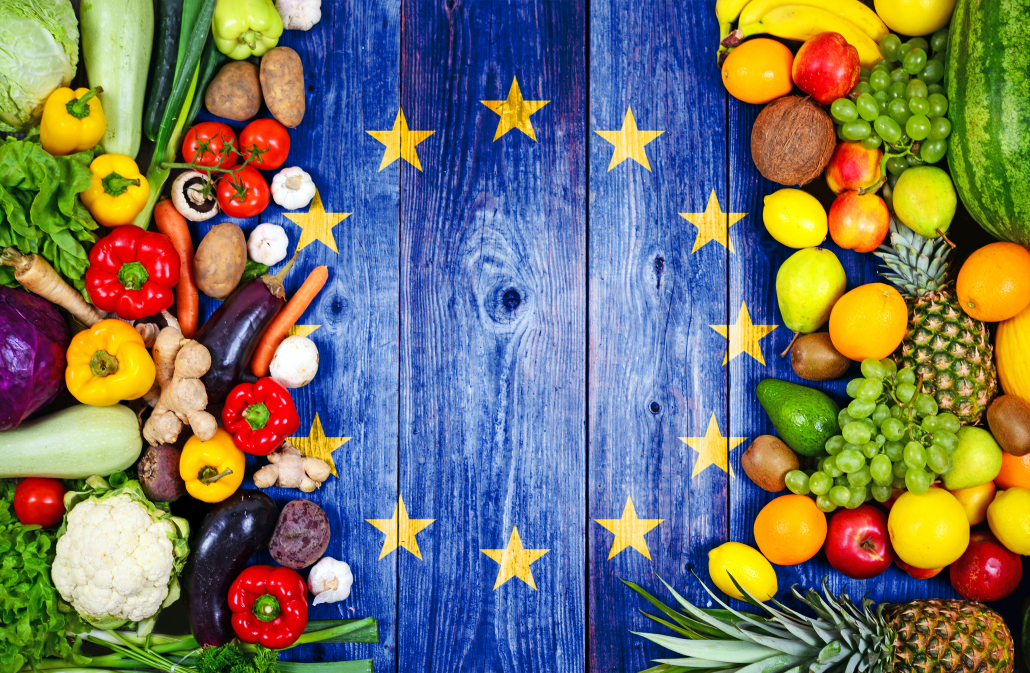
On 21 October 2021, ALLEA, the European Federation of Academies of Sciences and Humanities, responded to the European Commission’s public consultation on ‘legislation for plants produced by certain new genomic techniques (NGTs)’.
ALLEA has a long-standing interest in providing independent scientific advice to European policymakers and society. In this context, it has engaged in several activities that explore the potential applications and risks of genome editing for crop improvement. In its statement, ALLEA stresses that maintaining the status quo is not an option and welcomes the European Commission’s request for feedback on its initiative to develop new legislation for plants produced by NGTs, such as the CRISPR-Cas technology for genome editing.
“[T]he increasing global demands (both in quality and quantity) on our food systems, as well as the challenges imposed on the agriculture sector by climate change, are huge and it seems unreasonable to exclude possible solutions that may allow opposing these challenges.”
 The response to the European Commission’s consultation summarises key elements from the ALLEA report “Genome Editing for Crop Improvement”, which is based on expert discussions during the joint ALLEA and Royal Flemish Academy of Belgium for Science and the Arts (KVAB) symposium on the topic in November 2019. Building on this report, ALLEA is currently participating as a knowledge partner in the cross-disciplinary Task Force on “Sustainable Agriculture and Innovation“, led by the European think-tank Re-Imagine Europa. The consultation response lists the desired attributes of an ideal regulatory system together with possible directions for future legislation, as described in detail in the task force’s recent White Paper on the Regulation of Genome Editing in Agriculture.
The response to the European Commission’s consultation summarises key elements from the ALLEA report “Genome Editing for Crop Improvement”, which is based on expert discussions during the joint ALLEA and Royal Flemish Academy of Belgium for Science and the Arts (KVAB) symposium on the topic in November 2019. Building on this report, ALLEA is currently participating as a knowledge partner in the cross-disciplinary Task Force on “Sustainable Agriculture and Innovation“, led by the European think-tank Re-Imagine Europa. The consultation response lists the desired attributes of an ideal regulatory system together with possible directions for future legislation, as described in detail in the task force’s recent White Paper on the Regulation of Genome Editing in Agriculture.
ALLEA urges “NGTs to be considered an important tool for delivering on the goals of the European Green Deal and Farm to Fork strategy, whilst maintaining high health and environmental standards”, and emphasises the need to engage in constructive dialogue with stakeholders and European citizens on this contested topic.
ALLEA’s full response to the European Commission’s consultation can be found here.
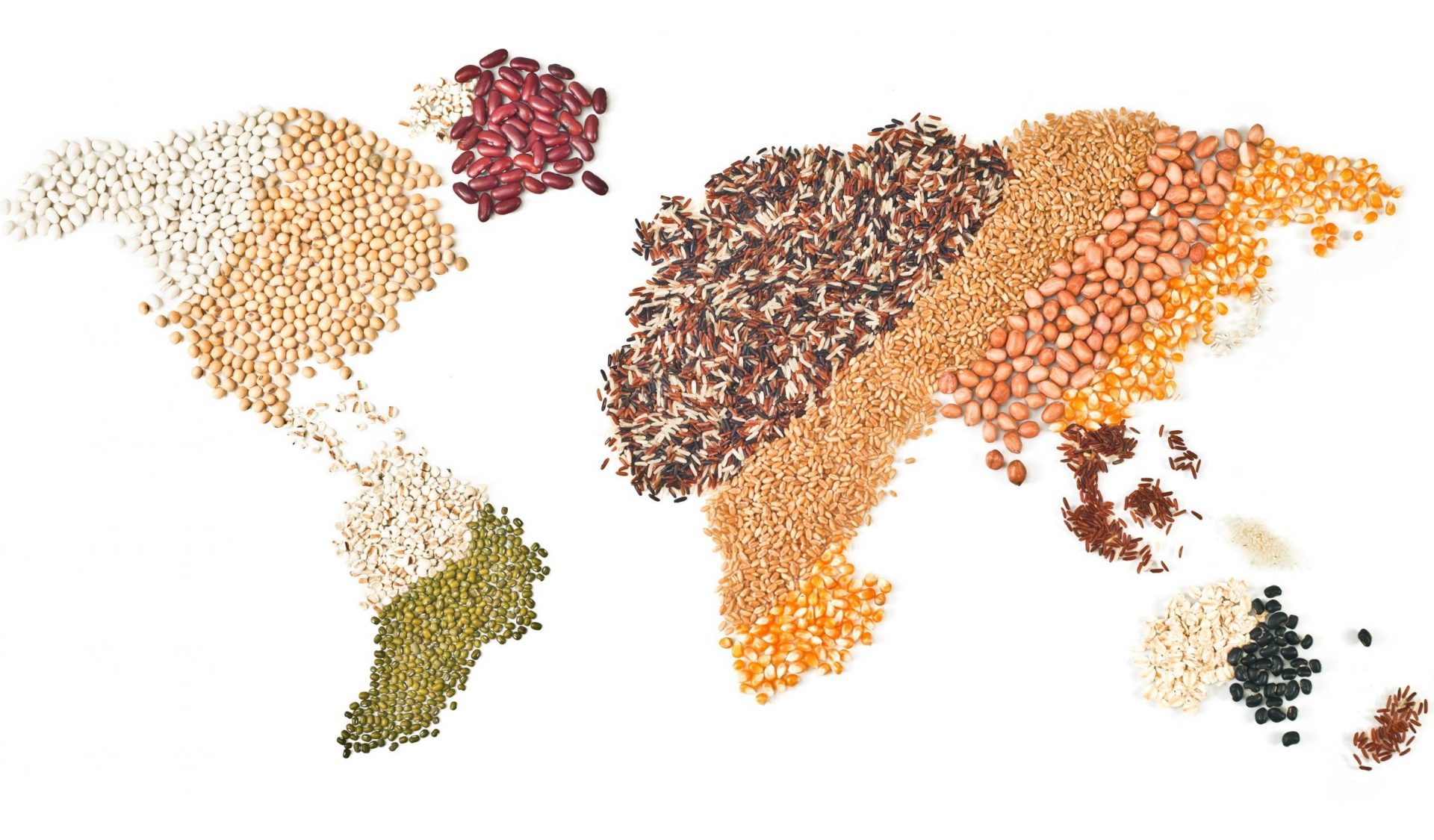
On Tuesday 5 October, ALLEA participated in an online Expert Committee meeting of the Re-Imagine Europa-led Task Force on “Sustainable Agriculture and Innovation” to exchange international perspectives on regulatory systems for the application of new genomic techniques in agriculture.
Since the European Commission published its study on new genomic techniques in April 2021, it has become clear that a policy action on plants produced by targeted mutagenesis and cisgenesis is both necessary and forthcoming. Given this shift in stance from “if” to “how” the legislative framework should be changed, Europe must now consider how high health, safety, and environmental standards can be maintained whilst delivering on the goals of the European Green Deal and Farm to Fork strategy.
In shaping Europe’s future regulatory approach, it is more important than ever that we learn from developments in other parts of the world. Therefore, the main objective of the meeting was to provide inspiration for policy directions that can provide proportionate, future-proof and resilient regulatory oversight, as understood in the Task Force’s White Paper on the Regulation of Genome Editing in Agriculture and in a manner that addresses the concerns identified as part of the narrative analysis detailed in the Task Force’s recent report Beyond the Apple of Discord: Existing Narratives and Ways Forward.
The meeting was chaired by Dr Peter Kearns, Special Adviser to Re-Imagine Europa, and started with a keynote presentation from Prof Jennifer Doudna, Professor in the Departments of Chemistry and of Molecular and Cell Biology at the University of California, Berkeley and 2020 Nobel Laureate in Chemistry. In her presentation, Prof Doudna explained the role genome editing can play in counteracting the local consequences of climate change on our food systems, which comprise increased disease severity, lower crop yields, and decreased nutritive quality of food:
“CRISPR-based solutions will allow farmers to adapt to a changing climate and sequester more carbon while preserving prized regional varieties. There is an incredibly important role for CRISPR in the protection of small farmers.”
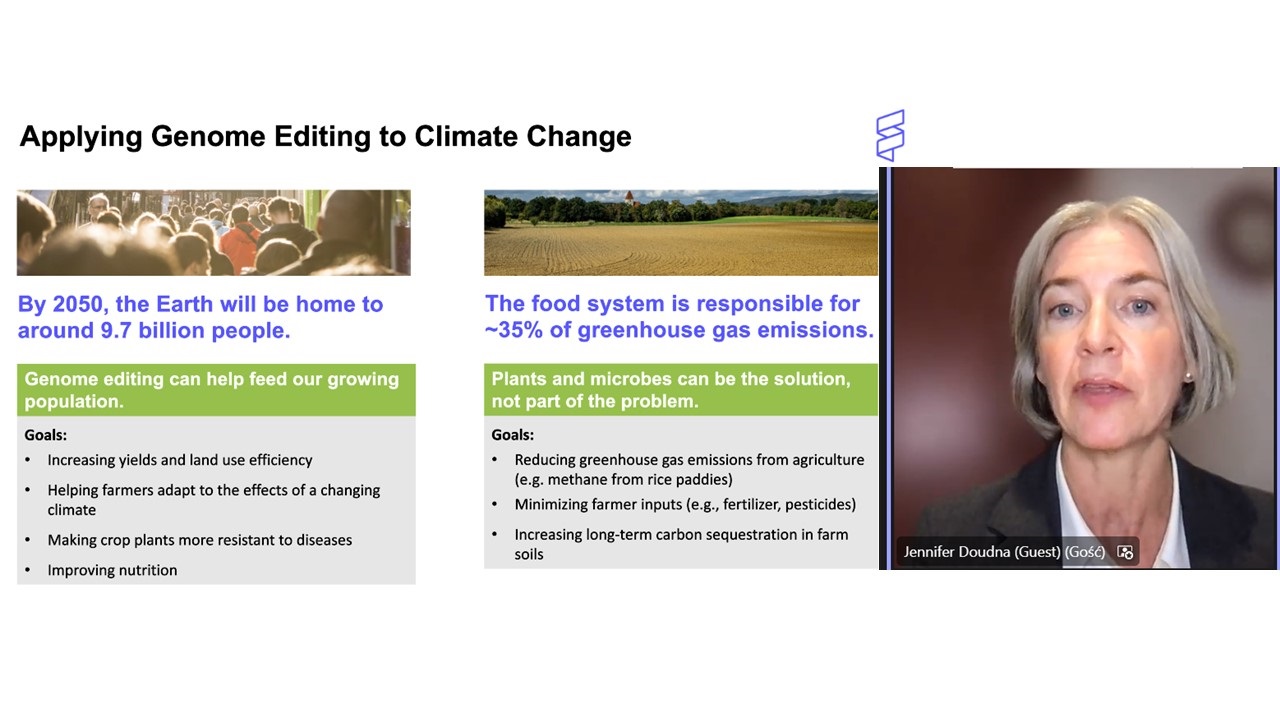
On the other hand, Prof Doudna emphasized the importance of developing a robust ethical framework for CRISPR-based applications:
“It will be crucial to create international standards and secure equitable access to the technology – for the immense benefits of CRISPR-based solutions to be realized, public acceptance is imperative, as is access to innovations.”
The keynote lecture was proceeded by six short interventions by international experts that shed their light on the different regulatory systems for genome editing in agriculture in key regions of the world:
During the open discussion that followed, the invited speakers and Expert Committee members exchanged their views and experiences on a wide range of topics, including: the challenges in finding the appropriate balance between innovation and precaution, how public opinion and stakeholder perception have shaped new legislation, how new regulatory systems can be designed to be future proof, and how differences between local regulatory systems might affect international trade.
The Task Force will continue to closely monitor the European Commission’s timeline for the development of a new regulatory system for new genomic techniques in agriculture and will continue to foster constructive dialogue on this contentious topic. For a complete overview of ALLEA’s work on genome editing for crop improvement, please visit our dedicated webpage.
The full programme of this meeting can be accessed here.
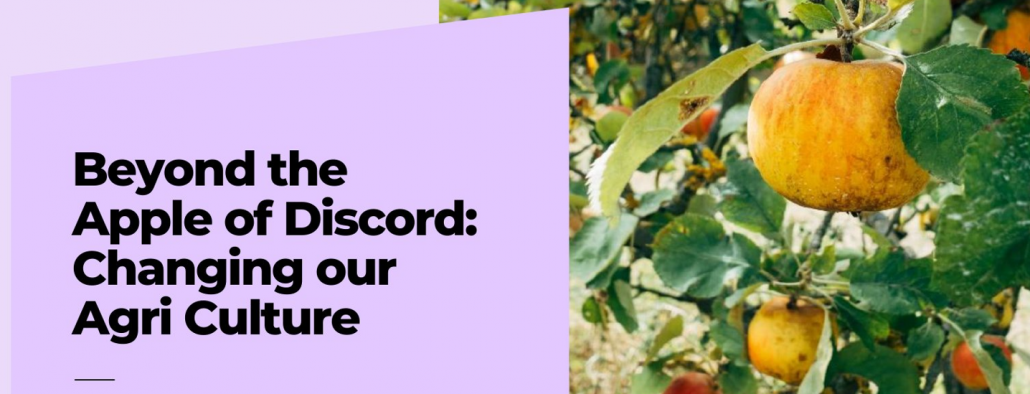
On 22 July 2021, Re-Imagine Europa (RIE), together with knowledge partners ALLEA and EU-SAGE, presented two reports on innovation in agriculture in a virtual event. The publications look into existing narratives concerning the role of genome editing for crop improvement and potential ramifications for European policy.
At the event, titled ‘Beyond the Apple of Discord: Changing our Agri Culture’, science-policy stakeholders discussed the future of new breeding techniques, such as genome editing in crops, in moving towards sustainable European agriculture systems and in addressing climate and environmental-related challenges. Keynote speakers of the event included Janusz Wojciechowski, European Commissioner for Agriculture; Norbert Lins, Member of the European Parliament; and Urs Niggli, President of agroecology.science. The event was chaired by Professor Louise Fresco, President of the Wageningen University.
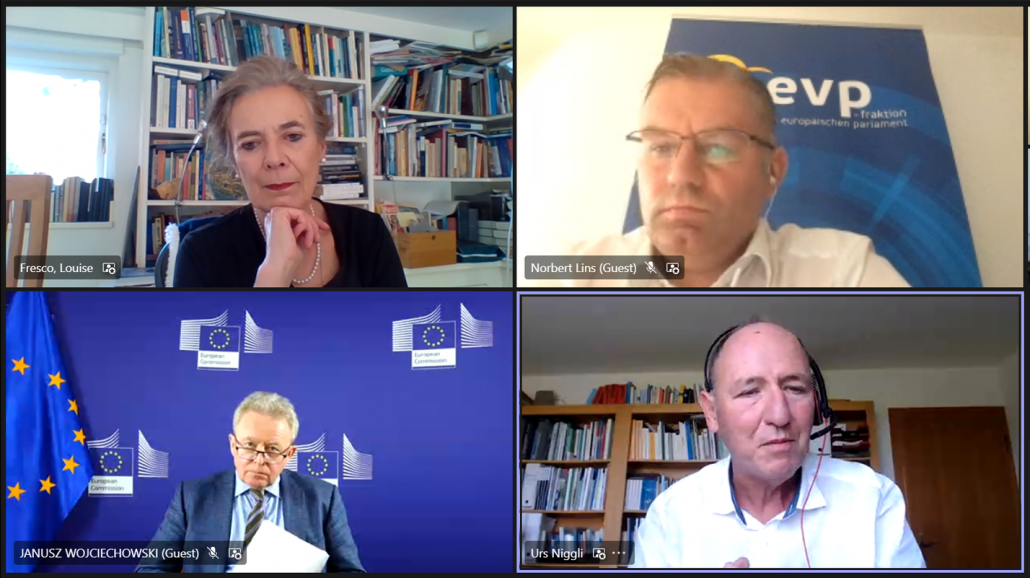
Invited speakers: Professor Louise Fresco, Wageningen University (top left); MEP Norbert Lins, Chair of the Committee on Agriculture and Rural Development (top right); EU Commissioner for Agriculture Janusz Wojciechowski (bottom left); Urs Niggli, President of agroecology.science (bottom right).
The RIE-led Task Force on Sustainable Agriculture and Innovation aims to better understand the emotions and values behind different perspectives and to see if, with ambitious European climate, sustainability, and biodiversity goals as clear priorities, it is possible to find positive pathways forward.
During the event, the task force presented two reports that look at what we can learn from existing narratives and the potential implications for policy actions. For a short description of the task force and a summary of the reports, see “Overview of the Reports on Sustainable Agriculture and Innovation”.
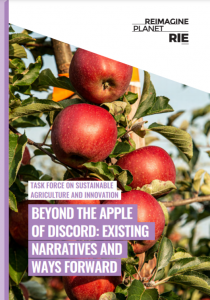 In the first report, “Beyond the Apple of Discord: Existing Narratives and Ways Forward”, the task force focuses on how different stories, symbols, images, and metaphors are used to inform the debate on the future of European agriculture. The report specifically describes the role of these emotions and narratives in framing the way we think about using genome editing for crop improvement.
In the first report, “Beyond the Apple of Discord: Existing Narratives and Ways Forward”, the task force focuses on how different stories, symbols, images, and metaphors are used to inform the debate on the future of European agriculture. The report specifically describes the role of these emotions and narratives in framing the way we think about using genome editing for crop improvement.
As stated by Prof. Louise Fresco, “Rather than focusing on the ‘apple of discord’ we should address the ‘apples of confusion’; there is a lot of common ground, but we must identify and address where the confusion lies.”
“Rather than focusing on the ‘apple of discord’ we should address the ‘apples of confusion’; there is a lot of common ground but we must identify and address where the confusion lies.” Prof. @LouiseOFresco, chair of today’s event ‘Beyond the Apple of Discord’
— Louise O. Fresco (@LouiseOFresco) July 22, 2021
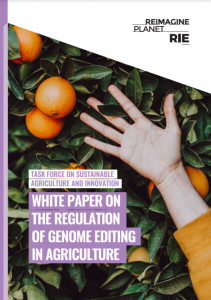 The second report, “White Paper on the Regulation of Genome Editing in Agriculture” aims to describe the attributes of an ideal regulatory system that balances the need for embracing innovation in agriculture, such as new genomic techniques, whilst ensuring protection of human health, the environment, and biodiversity. The report also presents five policy options to be considered in the upcoming debate on genome editing between the Council, the European Parliament, and relevant stakeholders.
The second report, “White Paper on the Regulation of Genome Editing in Agriculture” aims to describe the attributes of an ideal regulatory system that balances the need for embracing innovation in agriculture, such as new genomic techniques, whilst ensuring protection of human health, the environment, and biodiversity. The report also presents five policy options to be considered in the upcoming debate on genome editing between the Council, the European Parliament, and relevant stakeholders.
In his opening remarks, Janusz Wojciechowski, European Commissioner for Agriculture, reassured that “For us it is crystal clear that any policy decision should protect human and environmental health. Making European Food Systems sustainable and resilient is one of our key objectives.”
“For us it is crystal clear that any policy decision should protect human and environmental health. Making #EuropeanFoodSystem sustainable and resilient is one of our key objectives.” Janusz Wojciechowski European Commissioner for #Agriculture
— Janusz Wojciechowski (@jwojc) July 22, 2021
The task force is currently planning a follow-up meeting to be held in the European Parliament in Brussels in October/November 2021 (date and time to be announced and depending on Covid restrictions). This meeting will consider, amongst other things, how to further develop a shared vision for sustainable European agriculture systems and which policy options should be further pursued to achieve these goals.
ALLEA, together with Re-Imagine Europa and EU-SAGE, is part of a new Task Force on “Sustainable Agriculture and Innovation” chaired by Carlos Moedas, former European Commissioner for Research, Science, and Innovation. This initiative, led by Re-Imagine Europa, aims to build inclusive and pragmatic proposals on how innovation can support the creation of more sustainable and resilient European agricultural systems.
To achieve this, the Task Force will convene an Expert Committee of approximately 100 prominent individuals representing a multitude of perspectives from academia, politics, and key stakeholder groups.
“We need to change the way we reflect on future proofing regulation so that our laws can keep up with our labs”, said Moedas.
The Steering Committee currently consists of the following experts: Prof. Anne Cambon-Thomsen [CNRS, EGE]; Prof. Maria da Graça Carvalho MEP; Prof. Paolo De Castro MEP; Garlich von Essen [Euroseeds], Prof. Dirk Inzé [VIB-UGent Center for Plant Systems Biology], Dr. Peter Kearns [formerly of the OECD]; Pekka Pesonen [Copa-Cogeca], Prof. Pere Puigdomènech [ALLEA, Center for Research in Agricultural Genomics]; Dr. Daria Tataj [Tataj Innovation]; Nils Torvalds MEP.
The first meeting of the Task Force’s Steering Committee, a smaller group who will coordinate the work of the Expert Committee, took place on 17 November.
Read ALLEA’s report “Genome Editing for Crop Improvement”
The Royal Flemish Academy of Belgium for Science and the Arts will organise an online panel discussion on the conclusions and recommendations of the recent KVAB-ALLEA symposium report “Genome Editing for Crop Improvement” on 3 December, at 16:00 CET. Registration for the event is open.
The discussion will include the lead authors of the report, Oana Dima (VIB), Hubert Bocken (UGent, KVAB), René Custers (VIB), Pere Puigdomènech (CRAG, ALLEA) and Dirk Inzé (VIB, KVAB). The debate will be moderated by Godelieve Gheysen (UGent, KVAB).
The event will delve into the key takeaways of the report, which tackles the impasse of European policy and legislation after the ruling of the Court of Justice of the EU of 2018. This decision placed genome-edited crops under the Genetically Modified Organisms (GMO) legislation. Since then, the scientific community has passionately debated the future of these new breeding techniques.
The publication presents the state of the art of scientific evidence in the field and explores paths to harmonise EU legislation with recent scientific developments, while particularly considering relevant ethical and societal considerations.
Among the conclusions, the authors warned that continued legislative and policy restrictions may hamper the selection of more productive, diverse, and climate-resilient crops with a reduced environmental footprint.
The article also calls for an open, honest dialogue with all stakeholders, including the public, in the decision-making processes for introducing genome-edited products into the market, ensuring that the implications of market introduction are accurately communicated.

Dr Oana Dima, one of the lead authors of the ALLEA Report “Genome Editing for Crop Improvement”, responds to five key questions about the science behind new plant breeding techniques, from its applications to the impact of the current policy and legal impasse.
Question: The introduction of CRISPR-Cas in plant breeding is opening up new approaches for crop improvement. Where do you think it is most effectively employed?
Oana Dima: Europe harbours leading research centres, providing cutting-edge technologies to drive scientific innovation. In less than 10 years, we experienced a breakthrough in biotechnology with the development of genome editing by top researchers. Currently, genome editing with CRISPR-Cas is used by almost every biotechnology research group in the world in their daily research and the number of scientific reports published by research institutes is increasing exponentially. Earlier this month (October 2020) Emmanuelle Charpentier and Jennifer Doudna received the Nobel Prize in Chemistry for the development of the CRISPR-Cas method for genome editing. This illustrates how fundamental research with a touch of creativity can lead to new, exciting applications to help society and our planet. The highest recognition is crucial for further development and application of genome editing not only in medicine but also in agriculture and food production, which must become more sustainable in a world facing an increasing world population, climate change, and environmental degradation.
Q.: How did the ruling of the Court of Justice of the EU of 2018, placing genome-edited plant breeding under the Genetically Modified Organisms (GMO) Directive, impact on the scientific and technological development of these techniques in Europe?
O.D.: ALLEA (All European Academies) in collaboration with the Royal Flemish Academy of Belgium for Science and the Arts (Koninklijke Vlaamse Academie van België voor Wetenschappen en Kunsten, KVAB), organised a symposium about plant genome editing that took place in Brusselsin November 2019.
The ALLEA-KVAB symposium followed up on the concerns and criticisms voiced by large parts of the scientific community in response to the European Court of Justice (ECJ) decision of 25 July 2018, interpreted by the European authorities that organisms produced by mutagenesis techniques, such as genome editing with CRISPR, should be considered as genetically modified organisms (GMOs) within the meaning of the GMO Directive 2001/18.
The scientific community has voiced concerns that substantially restricting the possibility of utilising genome editing by applying the GMO legislation will have considerable negative consequences for agriculture, society and economy. More specifically, the development of beneficial crop varieties in a faster and much more directed way thanks to genome editing is halted in Europe, while the rest of the world embraces the technology.
The scientific community has voiced concerns that substantially restricting the possibility of utilising genome editing by applying the GMO legislation will have considerable negative consequences for agriculture, society and economy.
In response to the ECJ judgment, the EU-SAGE (European Sustainable Agriculture through Genome Editing) network was launched, which gathers scientists from 133 European research institutes and associations, from 21 different Member States, the UK and Norway and aims to provide information about genome editing and to promote the development of European and EU member state policies that enable the use of genome editing for sustainable agriculture and food production. Scientists representing the EU-SAGE network, are convinced that Europe needs to support innovative plant breeding through genome editing and strongly argue that enabling genome editing in future policies should be based on the best possible scientific knowledge and experience.
Q.: Safety is a major concern of the public when it comes to agricultural food production, and subsequently the use of genome-editing. Where do we stand on the safety of genome-edited plants? How likely is that this evidence may change in the future?
O.D.: The ALLEA-KVAB symposium aimed at providing an overview of the scientific evidence with respect to safety of genome–edited crops and their possible potential to provide solutions to current and future agricultural problems.
The use of a particular technology should not determine whether or not a certain crop is safe, but the introduced characteristics should determine its safety. With the use of genome editing, plant breeding becomes much more knowledge based. Plant breeding thereby transitions from a sometimes blind or random approach to a much more targeted and precise approach. Genome editing reduces the amount of uncertainties, which contributes to safety. Genome-edited crops with DNA changes that can as well spontaneously occur in nature or result from other breeding methods are considered to be generally as safe as crops with the same DNA changes obtained through conventional methods. In my opinion, a genome-edited crop with a specific change in the DNA is as safe as a conventional crop containing the same DNA change.
From a scientific point of view, it is important to highlight that scientists aim to further improve the predictability of genome editing, although this can be wrongly interpreted and perceived by the public as unsafe.
From a scientific point of view, it is important to highlight that scientists aim to further improve the predictability of genome editing, although this can be wrongly interpreted and perceived by the public as unsafe. There is a limited chance that genome editing results in unintended DNA changes. However, scientists are continuously working on improvements of genome editing to raise the specificity of the technology to a very high level. Even in the case of an unintended DNA change as a result of genome editing, this change can be removed through crossing or selection, which is a standard practice in the plant breeding process for the improvement of any crop.
Q.: The report calls for an open, honest dialogue with all stakeholders, including the public, in the decision-making processes for introducing genome-edited products into the market. Do you have examples in mind of how the dialogue with public could take place?
O.D.: In regard to the ongoing discussion on genome editing, it is important to clarify what aspect of the technology is being discussed. When decisions are taken based on claims different from scientific evidence, then it should be clearly communicated for transparency reasons. For this purpose, it is important to disentangle the facts and the values, although it can be difficult. In order to change parts of the public’s negative perceptions of food produced from genome-edited crops, it is necessary to increase the global understanding of the complexity of the food production systems. A large part of the public is generally not aware of the role of technological innovations in agriculture to contribute to economic and social wellbeing and that progress in agriculture will help us to better cope with climate adversities.
The agricultural system is a fundamentally man-made and artificial system, not a natural ecosystem and as such does not follow the laws of natural evolution but those of man-made selection.
A romanticised vision of agriculture is present in many European countries as a result of a distorted understanding of the agricultural system. The agricultural system is a fundamentally man-made and artificial system, not a natural ecosystem and as such does not follow the laws of natural evolution but those of man-made selection. The agricultural environment changes much faster than a natural environment would and the cultivated varieties must continually adapt to new growth conditions and new threats. This makes it necessary to continuously select new varieties. To make consumers aware, it is important to communicate the role of technological innovations in agriculture through evocative narratives instead of explaining the technicalities and possibilities of the technology itself. For example, genome editing has the potential to protect regional food traditions and to favour diversification.
Q.: What is your vision for the future of this technology? Where will we be in a few years from a technological point of view, where could we realistically see its application, and how will the public discourse evolve?
O.D.: The recently published Green Deal of the European Commission stated, within the context of the ‘Farm to Fork’ strategy, that the EU needs to develop innovative ways to reduce dependency on pesticides and fertilizers and reverse biodiversity loss while at the same time provide society with sufficient, nutritious, sustainable and affordable food.
Setting the targets is not enough, we also need tools to help achieve these targets. All possible approaches, including innovative plant breeding technologies, are required to address these challenges and to achieve the ambitious goals of the Farm to Fork strategy. The most recent addition to the toolbox to develop new crop varieties is precision breeding with genome editing. This technology has far-reaching applications such as increasing the diversity of crops, the reduction of pesticides, the further development of healthy food, and many more.
The European Union is missing out on innovative plant breeding through genome editing because the lack of fit-for-purpose legislation and if left unchanged, it will have dramatic consequences for Europe.
The European Union is missing out on innovative plant breeding through genome editing because the lack of fit-for-purpose legislation and if left unchanged, it will have dramatic consequences for Europe. Crop improvement through genome editing has enormous potential to help achieve the SDGs of the United Nations and the Green Deal of the EU, to feed the world of tomorrow, and aid in overcoming the perils on food production of climate change and environmental degradation. We are at a breaking point in Europe, which will determine how we will be able to transform our agricultural systems to build a greener future.
Read the report here.